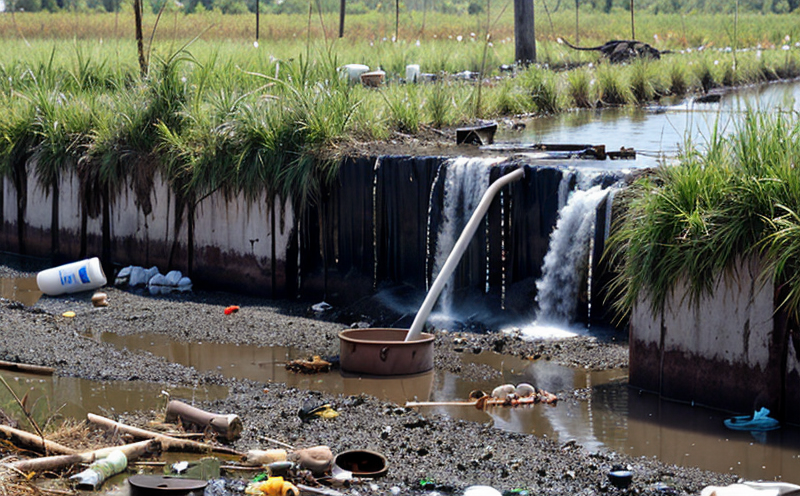Vegetable Pollutant Testing
In recent years, there has been increasing concern over environmental pollutants affecting agricultural products, including vegetables. Vegetable pollutant testing is critical for ensuring food safety and meeting regulatory standards. This service focuses on the analysis of various contaminants in vegetable samples to ensure they meet strict quality control criteria.
Contaminants can come from multiple sources such as pesticides, herbicides, heavy metals, mycotoxins, and other chemicals that may be harmful if consumed in excess. Ensuring vegetables are free from these pollutants is essential for public health and compliance with international standards like ISO 3696:2015, which specifies procedures for the sampling of fresh agricultural products.
Our laboratory uses advanced analytical techniques such as High-Performance Liquid Chromatography (HPLC), Gas Chromatography-Mass Spectrometry (GC-MS), and Inductively Coupled Plasma Mass Spectrometry (ICP-MS) to detect even minute traces of pollutants. These methods allow us to provide accurate, reliable results that are compliant with local regulations such as the European Union's Maximum Residue Levels (MRLs).
For specimen preparation, we follow standard protocols outlined in EN 12697-1:2003 for the sampling and preparation of fresh vegetables. This includes thorough washing, slicing, and blending to ensure a representative sample is analyzed.
The testing process involves several steps starting with the collection of vegetable samples from farms or suppliers. Samples are then transported under controlled conditions to our laboratory where they undergo rigorous quality checks before analysis begins. Once tested, detailed reports including raw data, interpretation, and recommendations for further action are provided to clients.
Why It Matters
Ensuring vegetables are free from harmful pollutants is not just a matter of compliance—it’s about protecting public health. Consuming contaminated vegetables can lead to serious illnesses ranging from acute poisoning to chronic diseases depending on the type and quantity of pollutant ingested.
- Health Risks: Prolonged exposure to certain pollutants like dioxins or cadmium can cause severe health issues including cancer, liver damage, kidney failure, and reproductive problems.
- Economic Impact: Contaminated produce can lead to costly recalls and loss of consumer confidence leading to significant financial losses for producers.
Quality and Reliability Assurance
We employ rigorous quality control measures throughout the entire process from sample collection to final report generation. Our team follows strict protocols ensuring accuracy and consistency in all tests conducted. Regular calibration of equipment and proficiency testing are key components of our QC program.
- Calibration: All instruments used for analysis undergo regular calibration against certified reference materials.
- Proficiency Testing: Participation in external proficiency tests helps verify the competence of our laboratory personnel and analytical methods.
Competitive Advantage and Market Impact
Offering reliable vegetable pollutant testing services provides several competitive advantages for clients. It enhances brand reputation by demonstrating commitment to product safety, which can attract more customers seeking trustworthy food products.
- Regulatory Compliance: Ensures that your products meet all relevant local and international standards thereby avoiding potential fines or bans.
- Better Decision Making: Provides valuable insights into the quality of raw materials used which can inform strategic decisions regarding sourcing practices.





